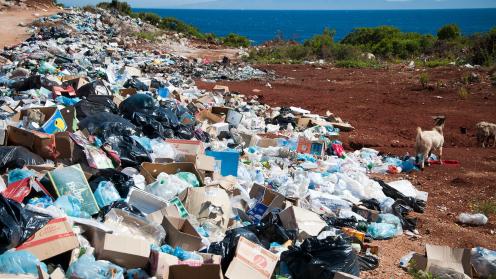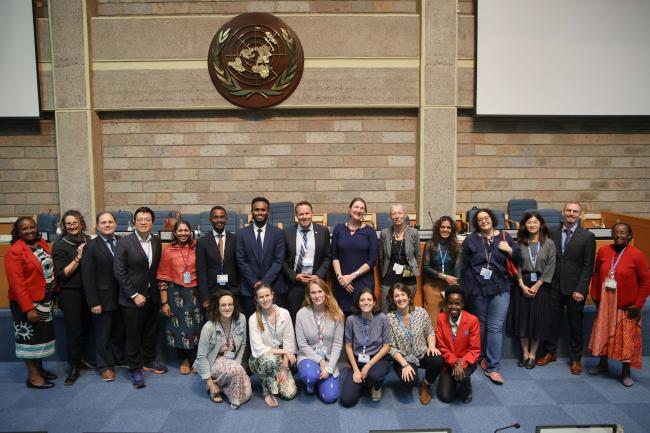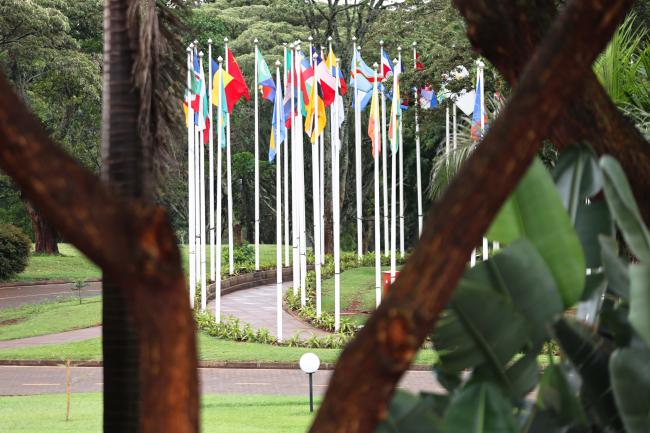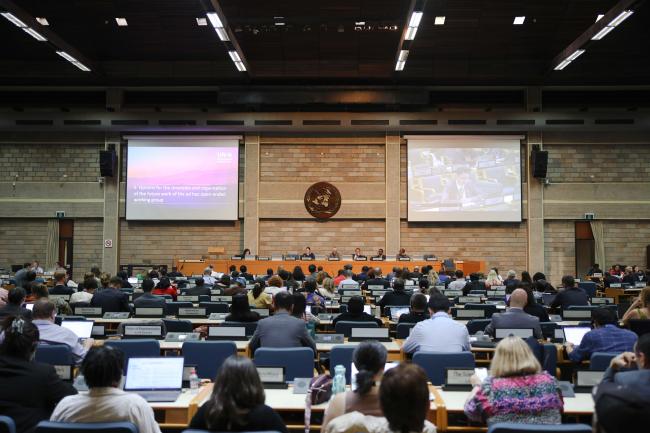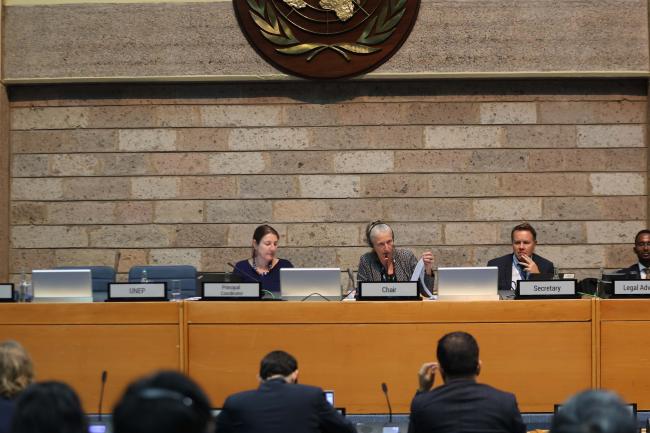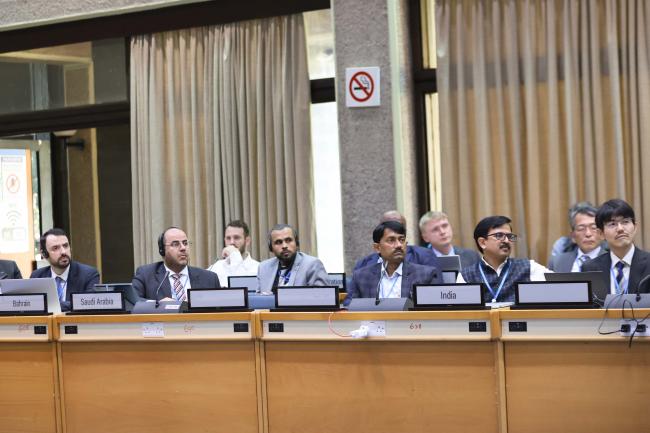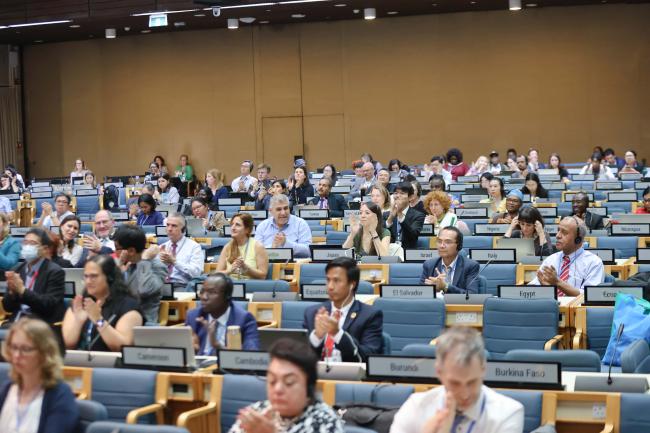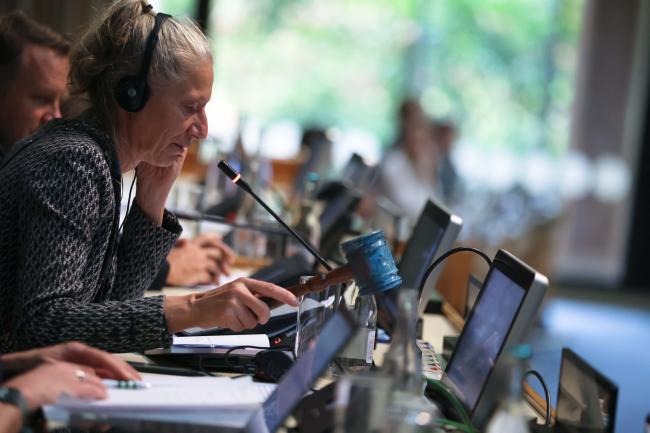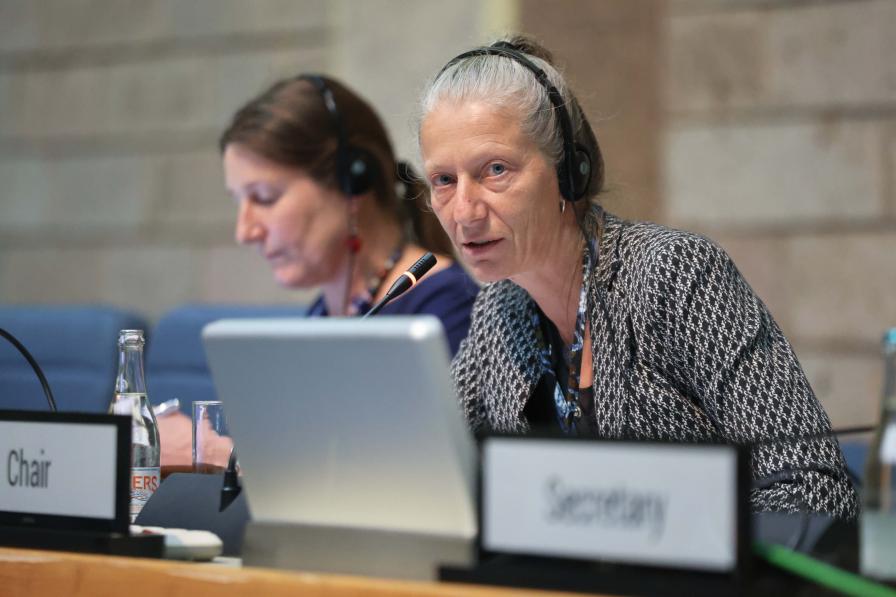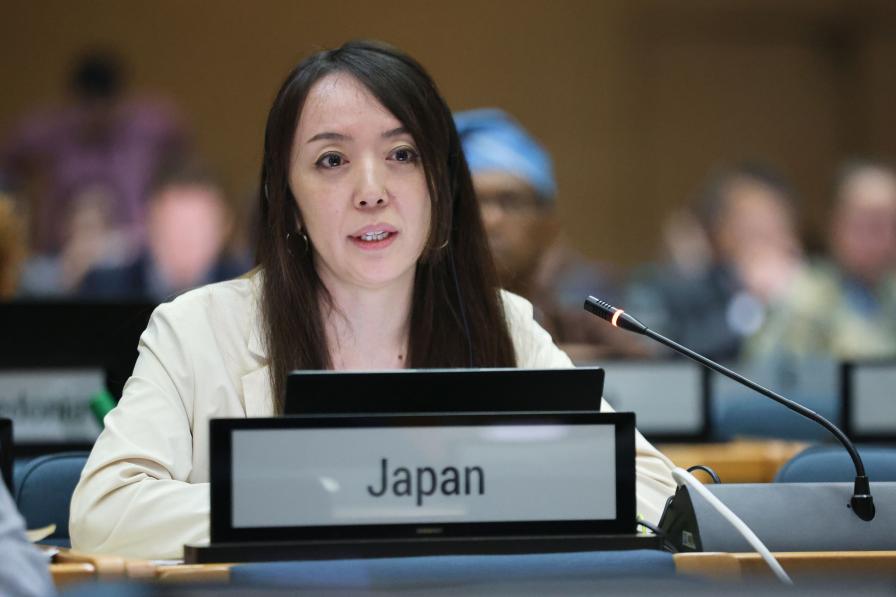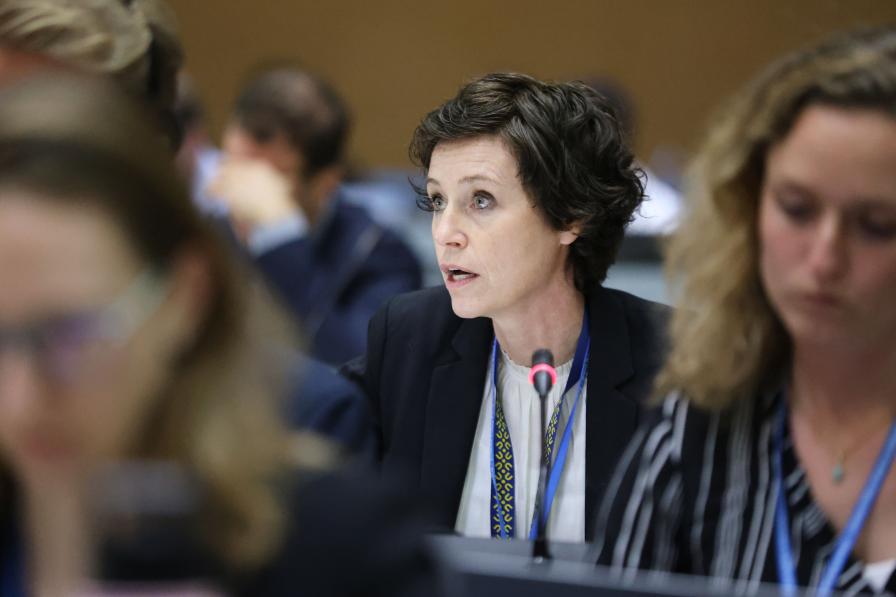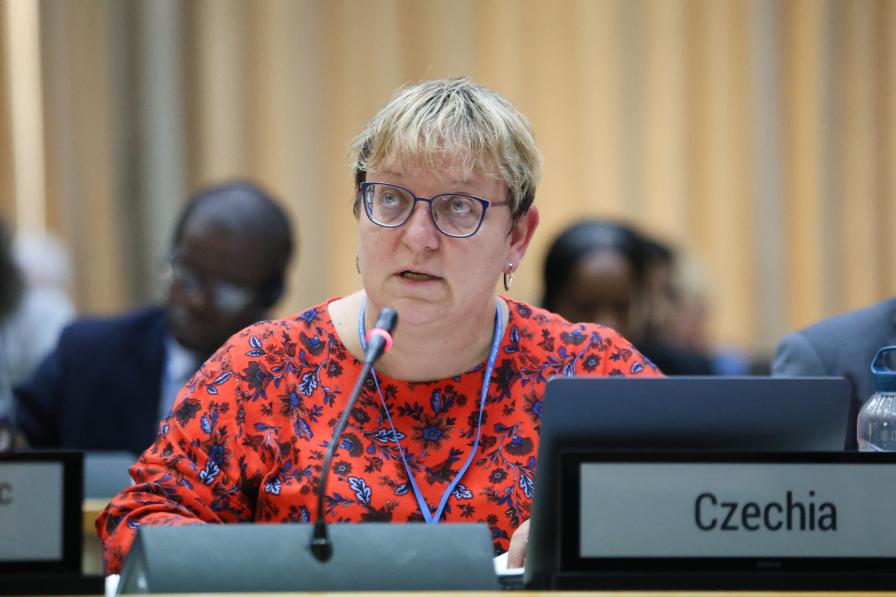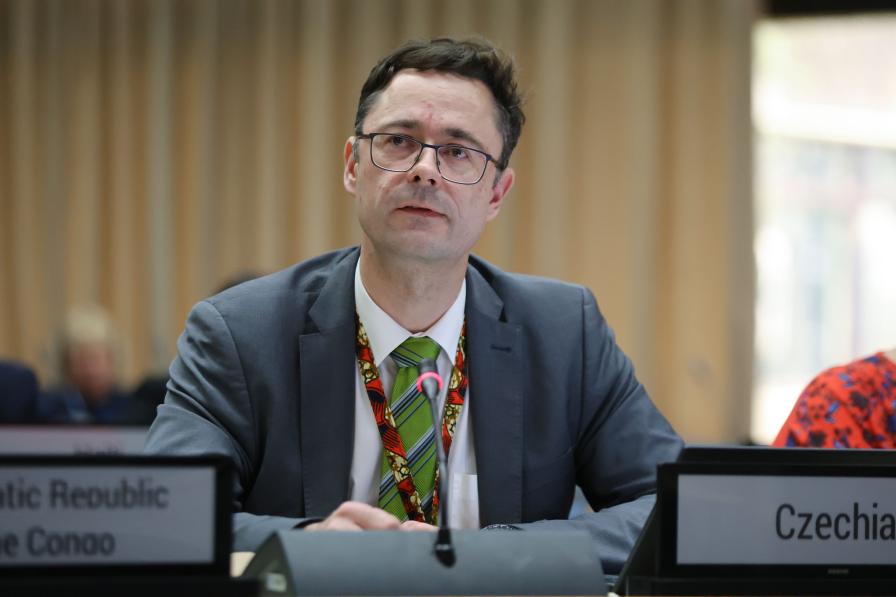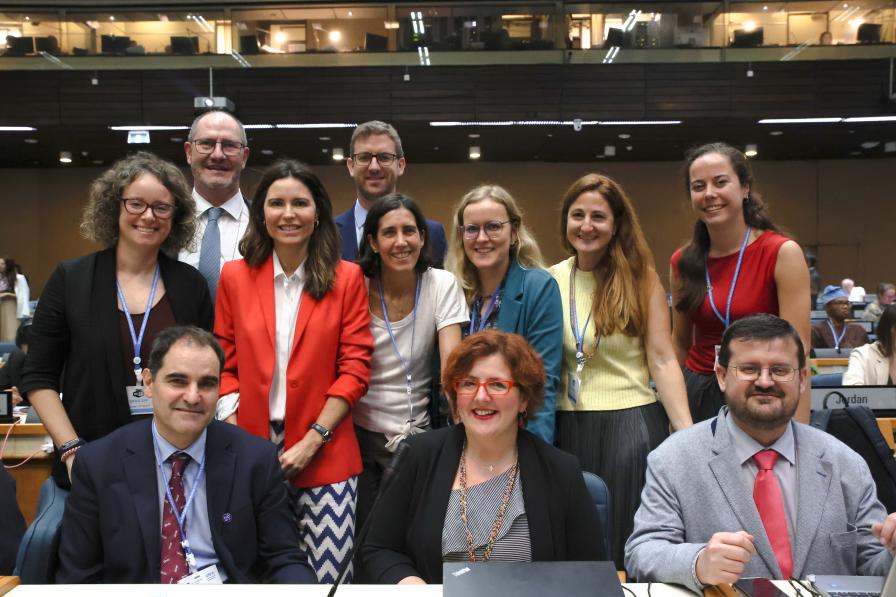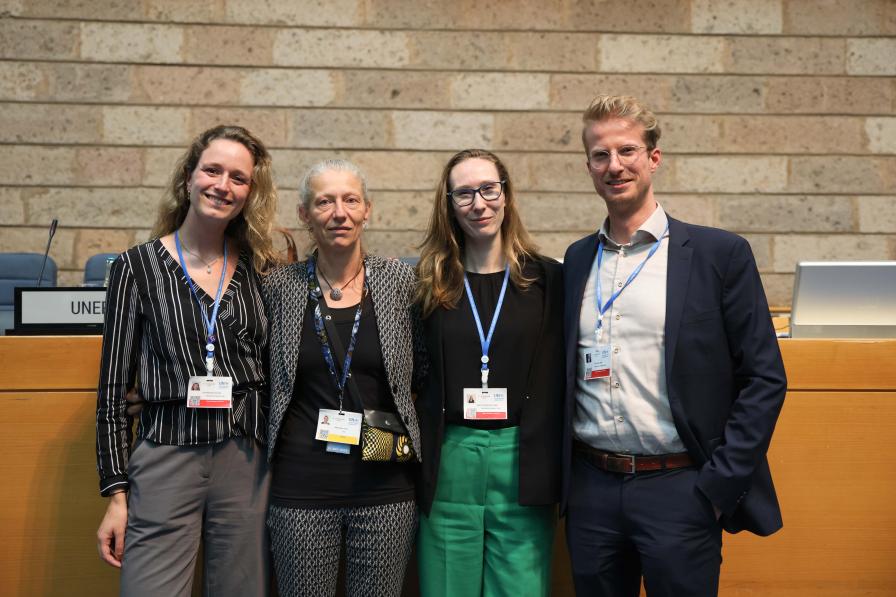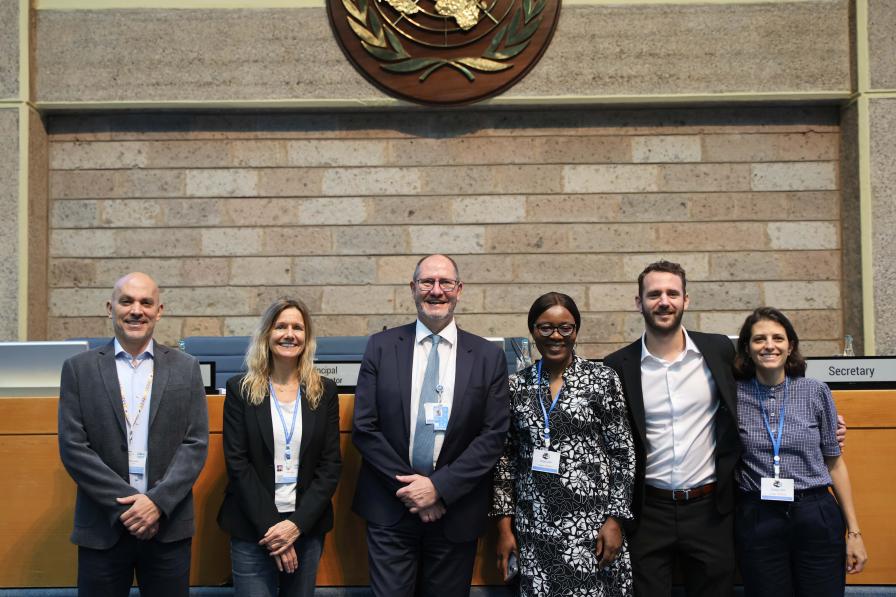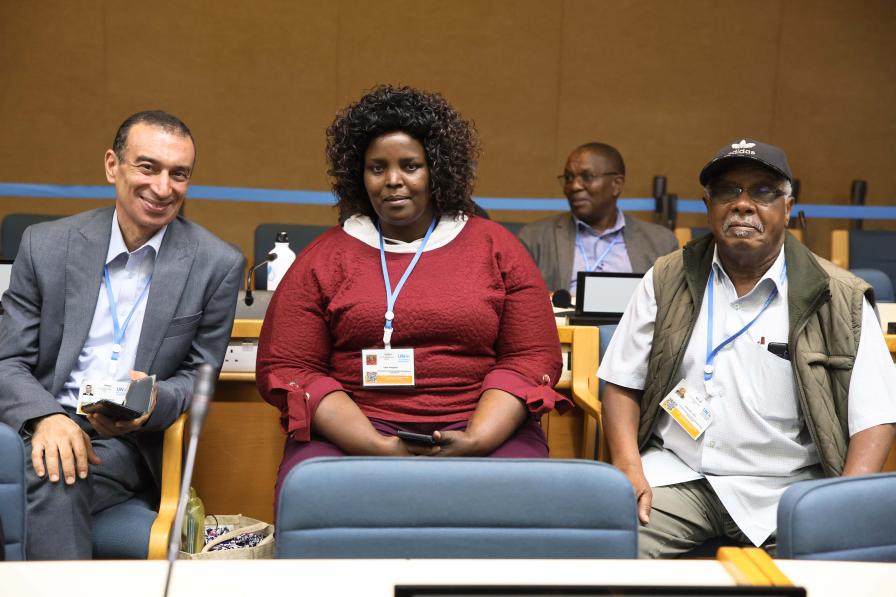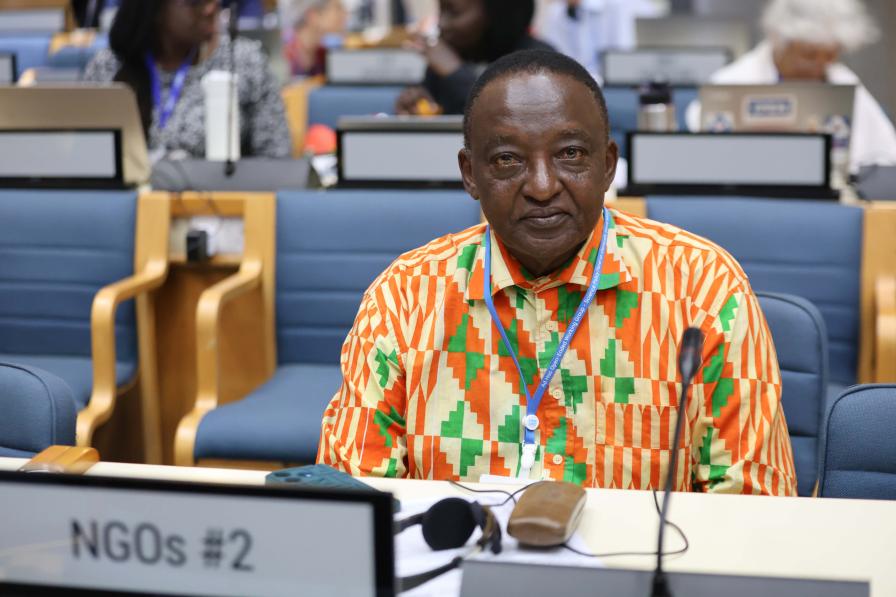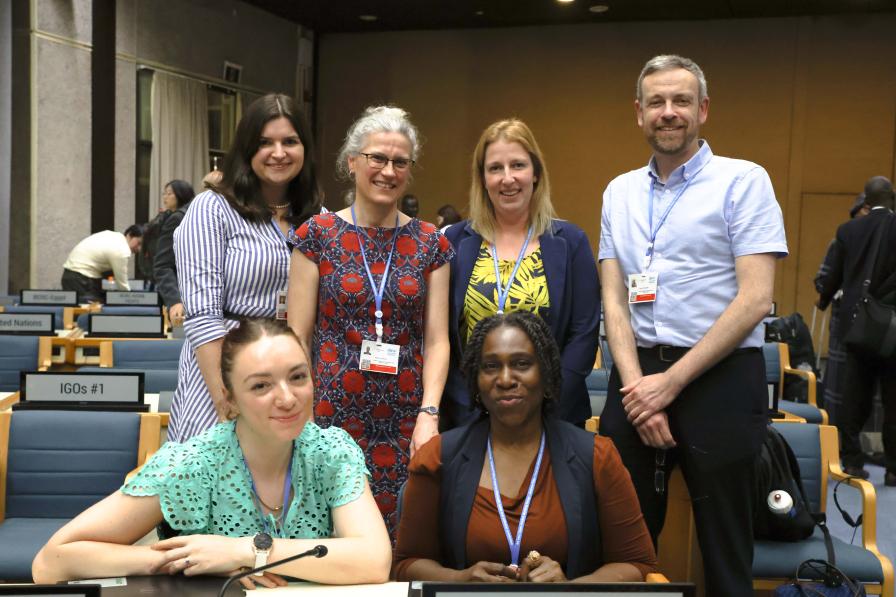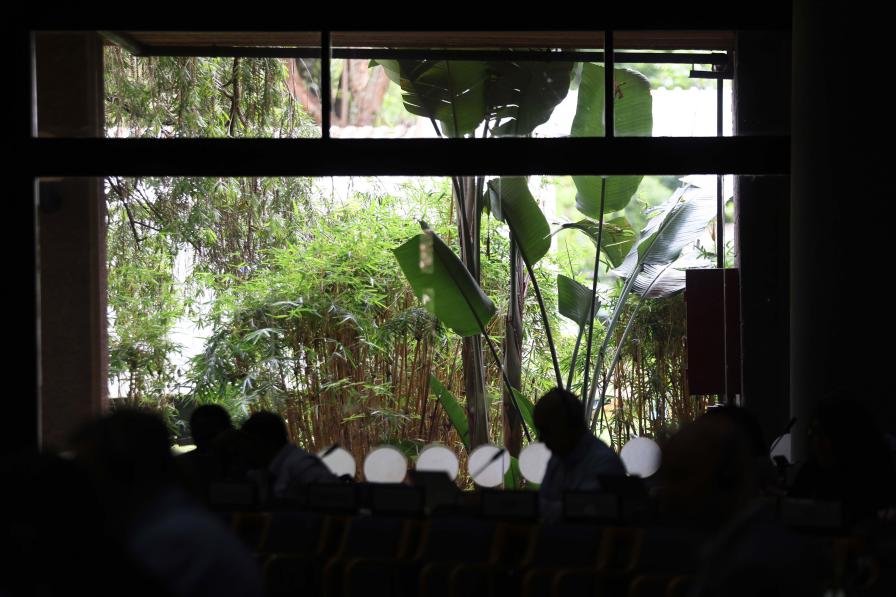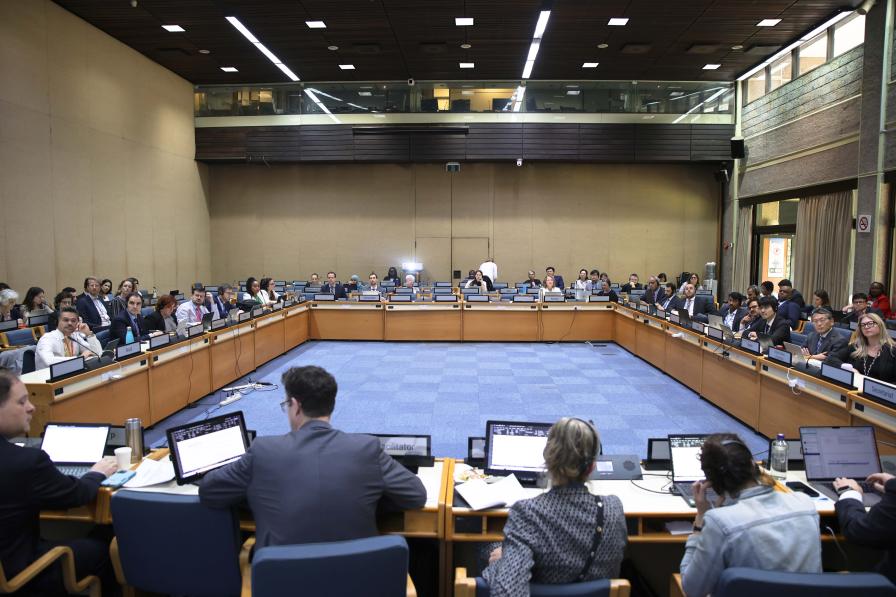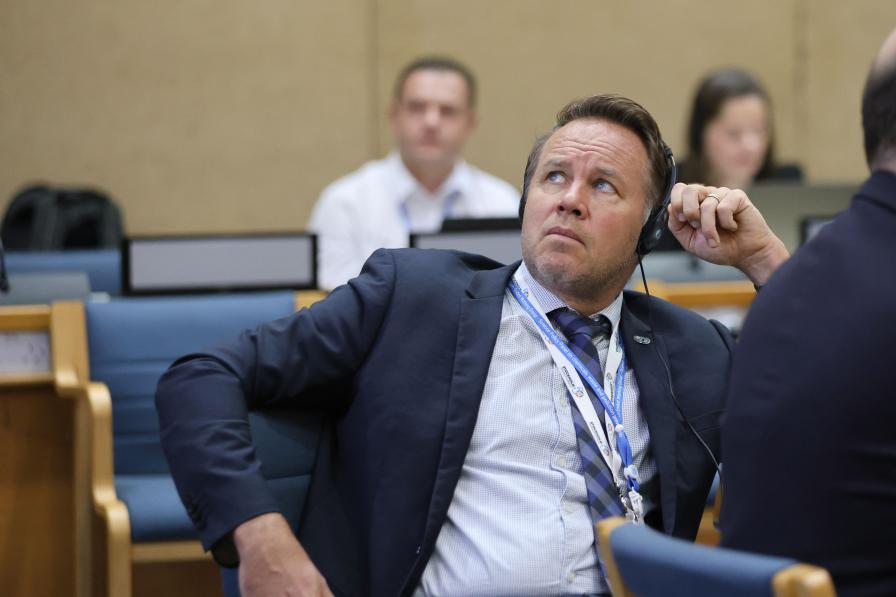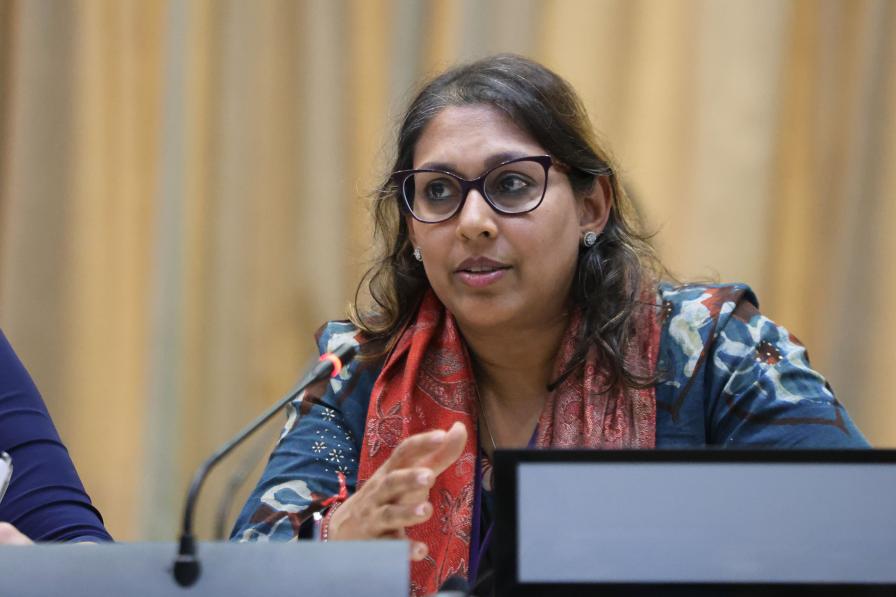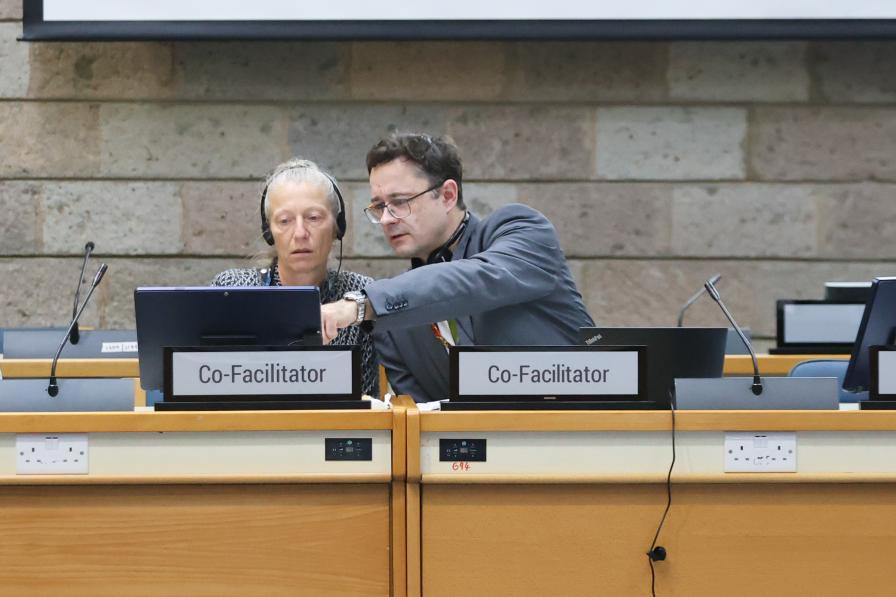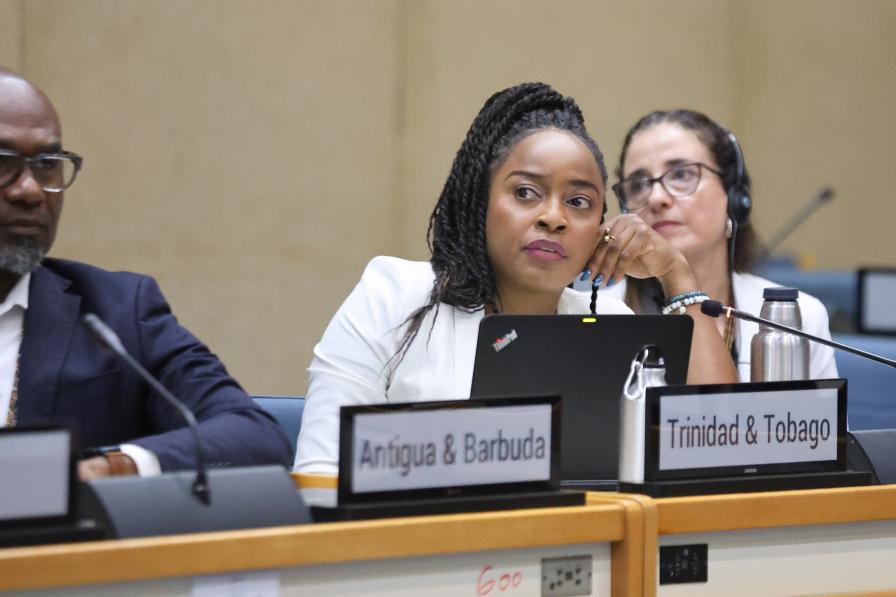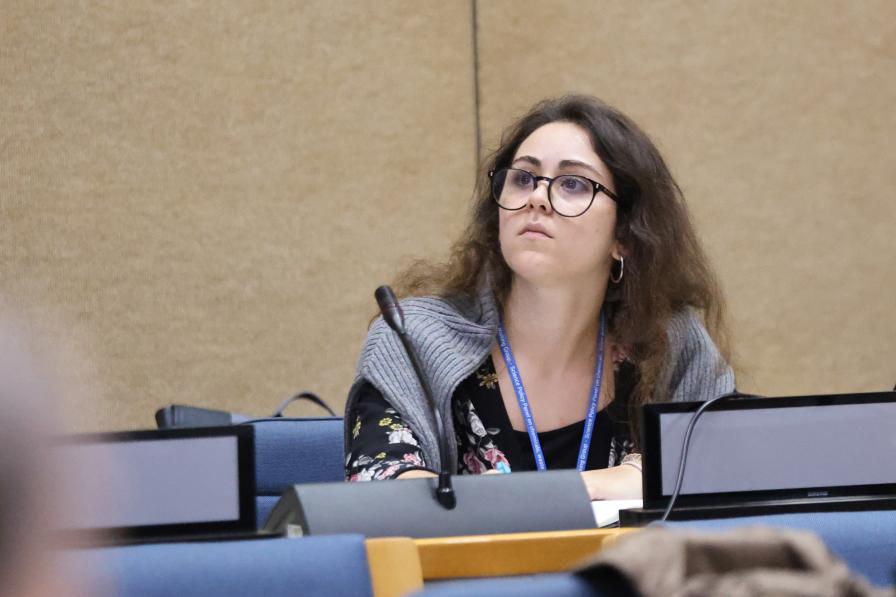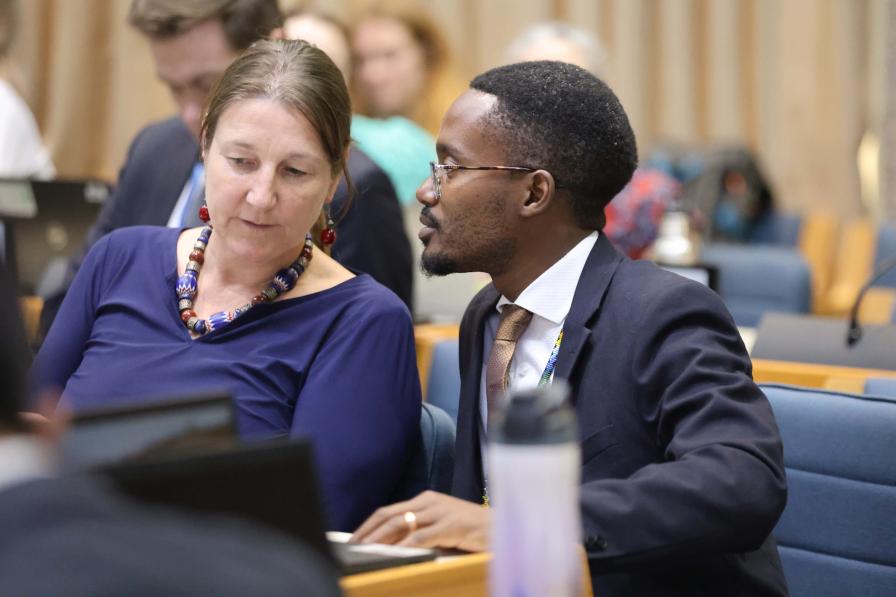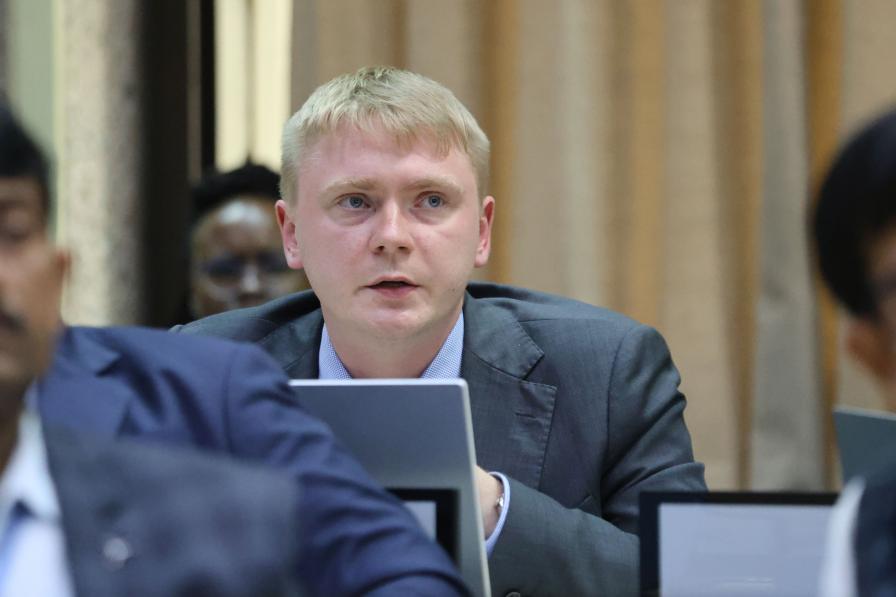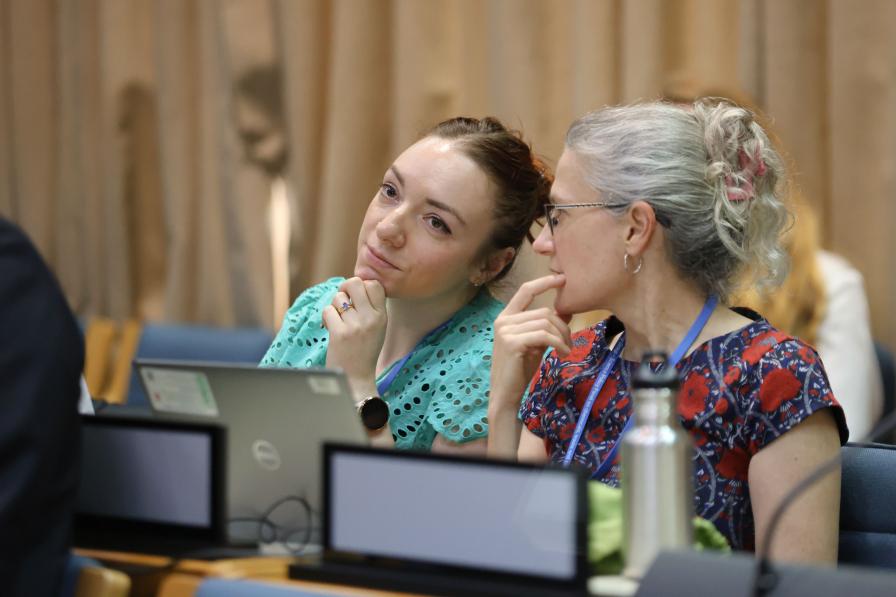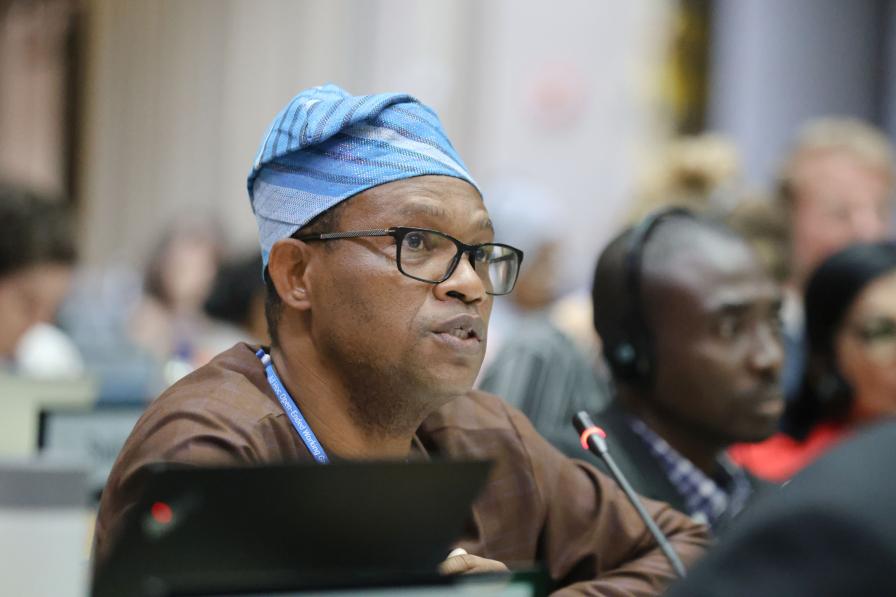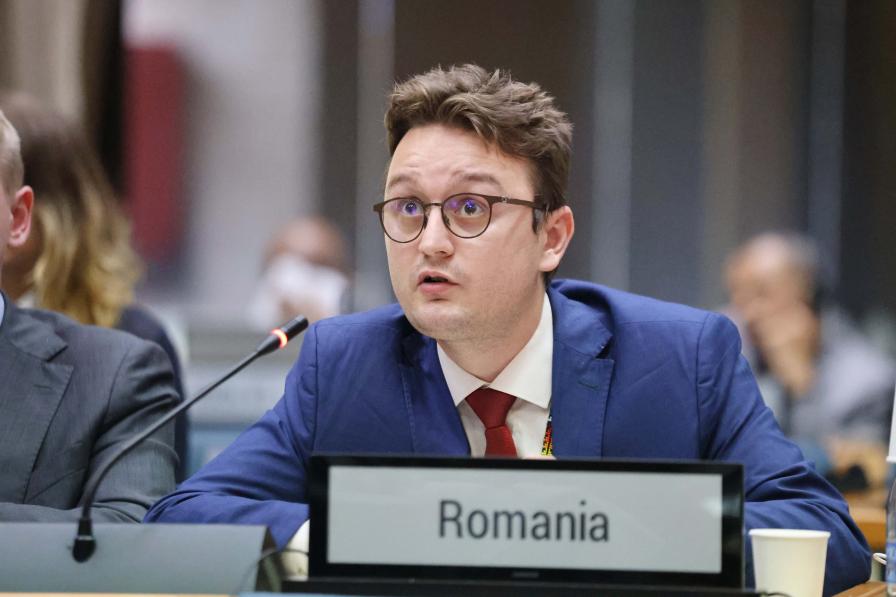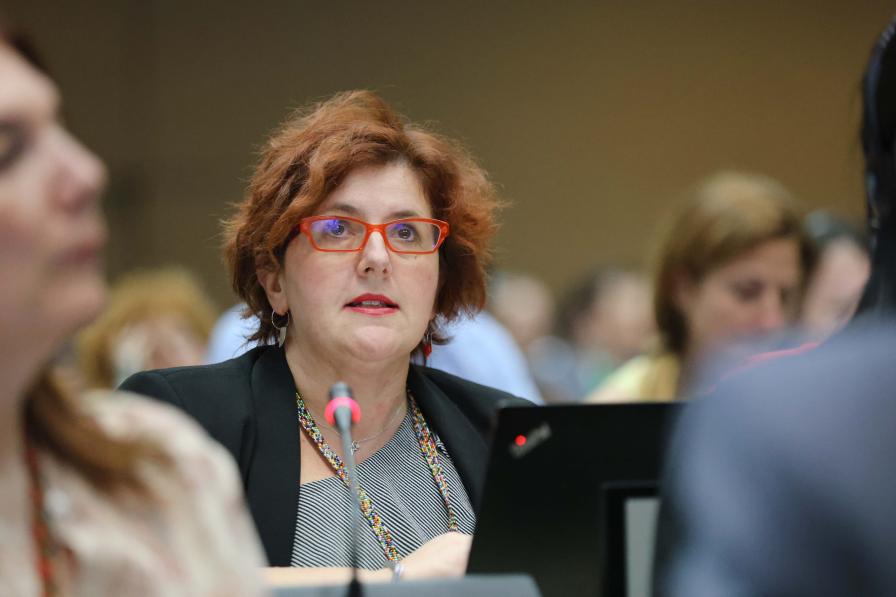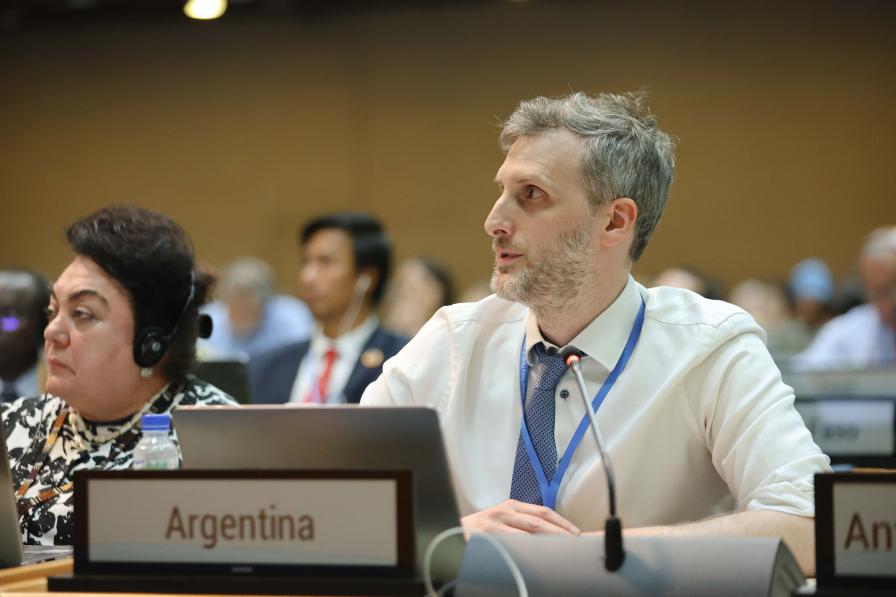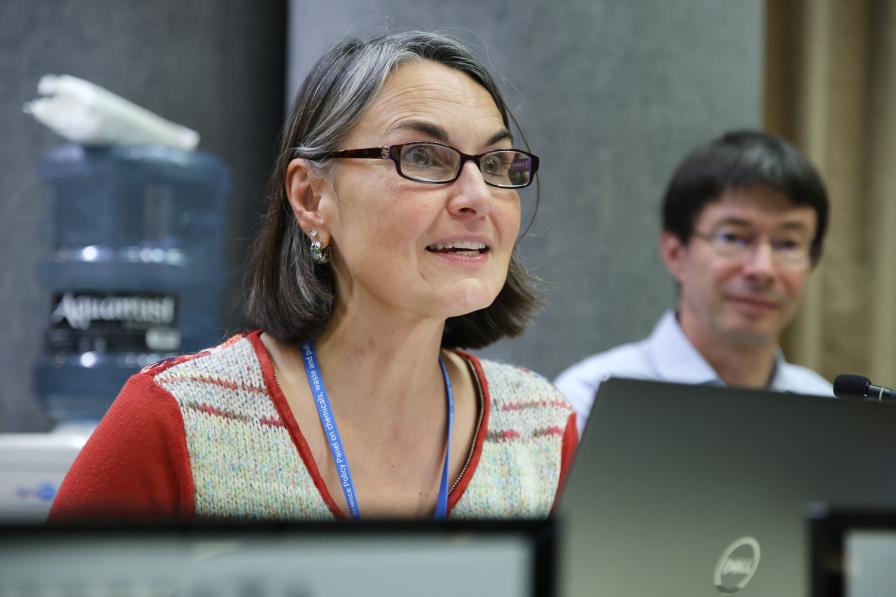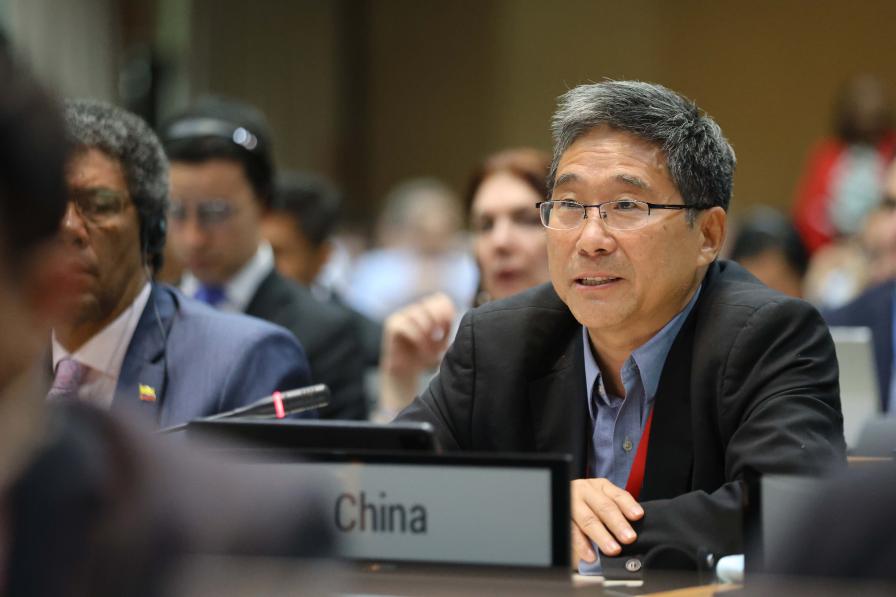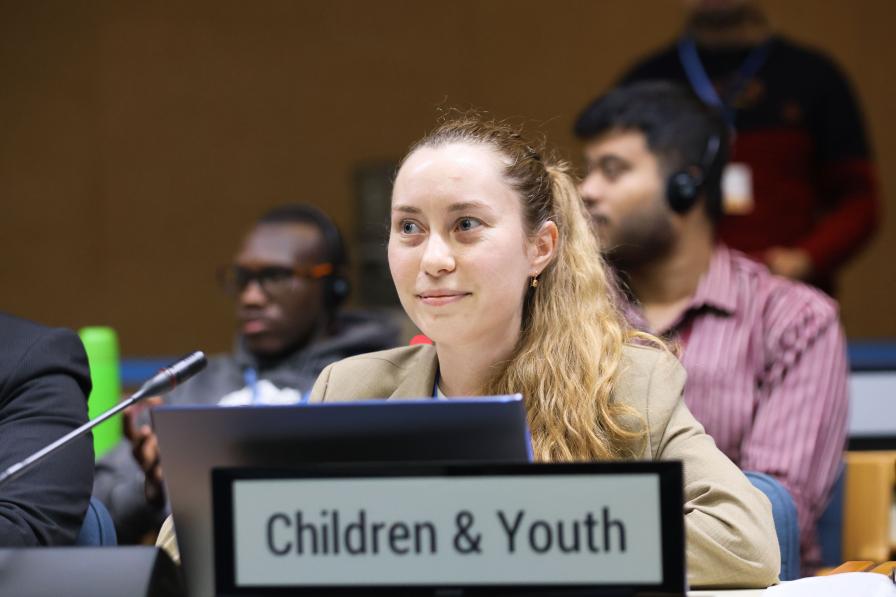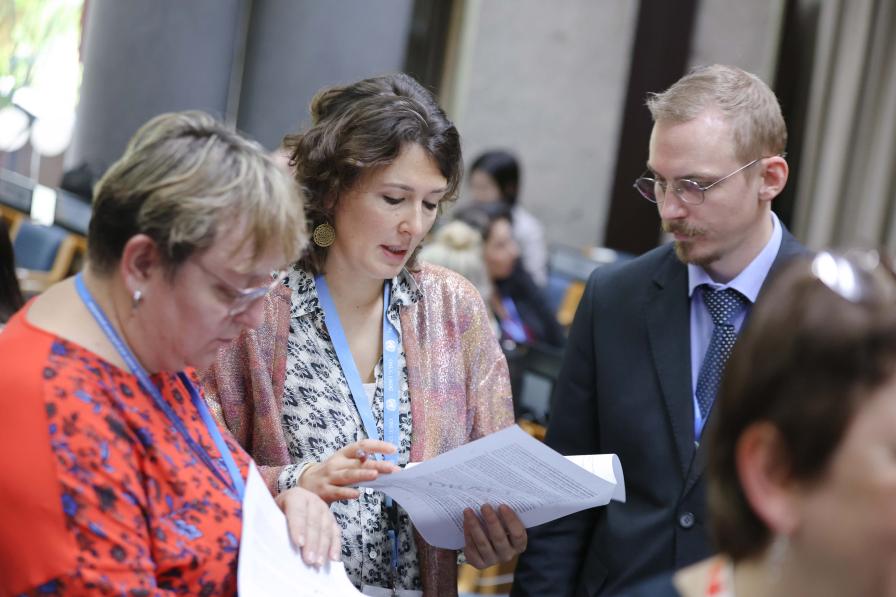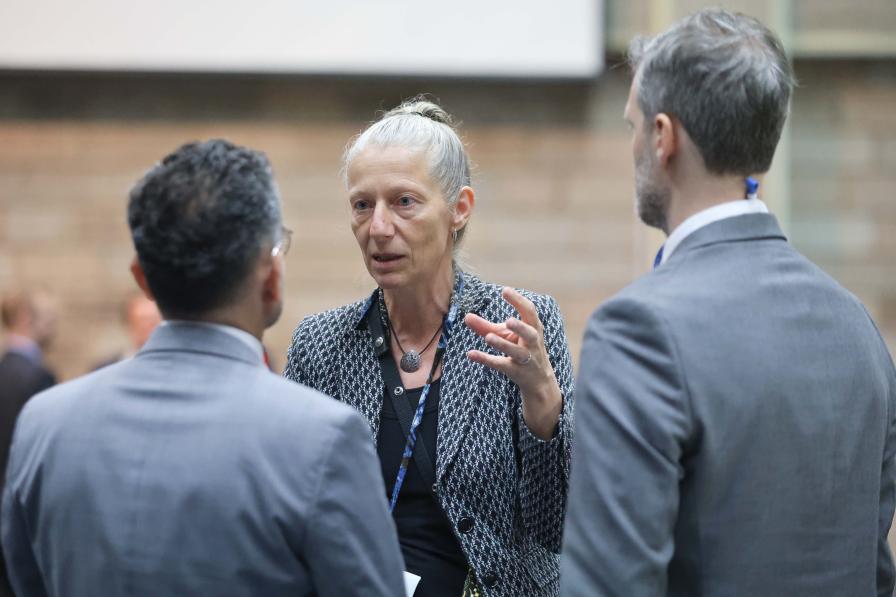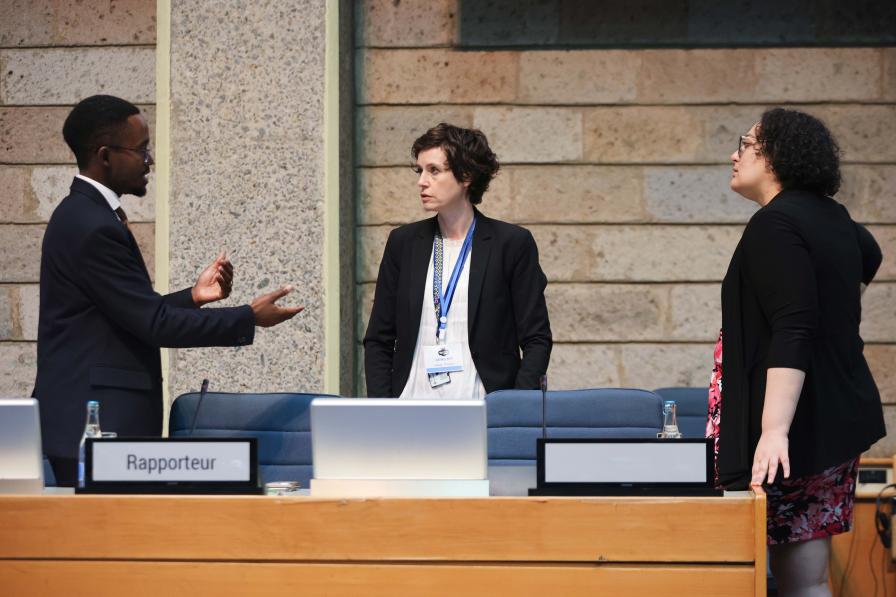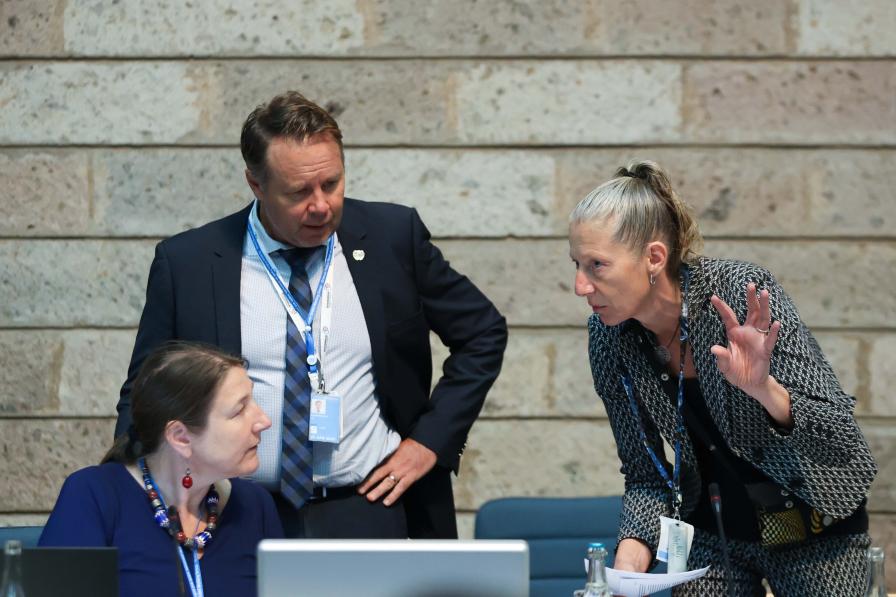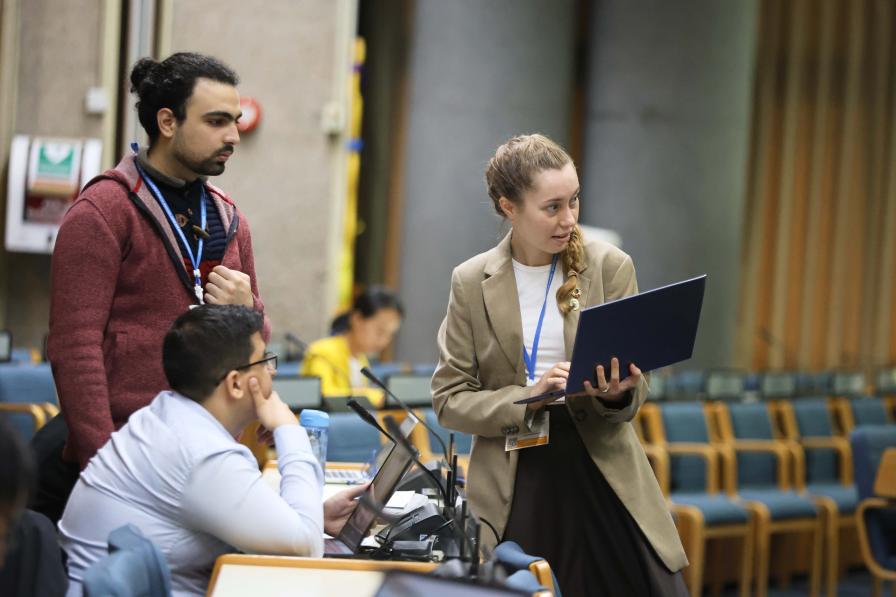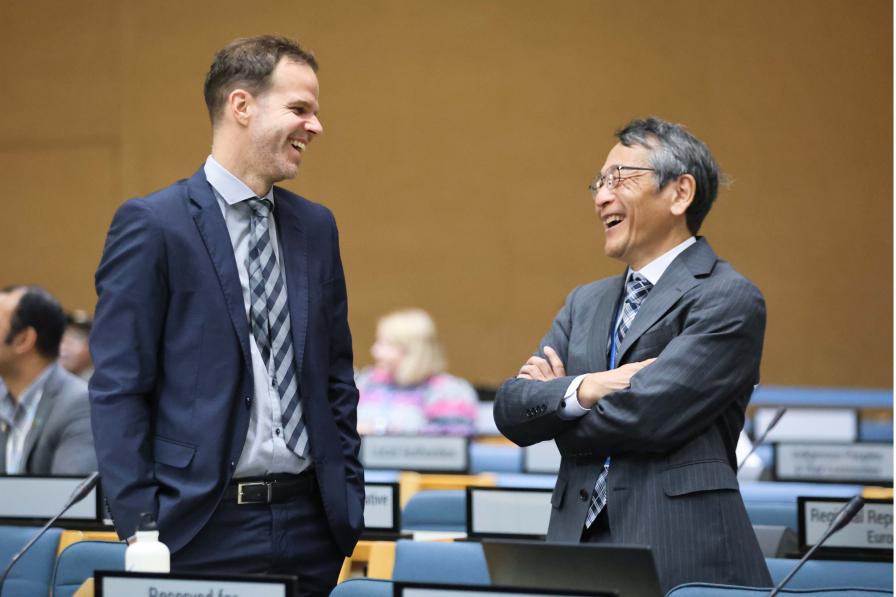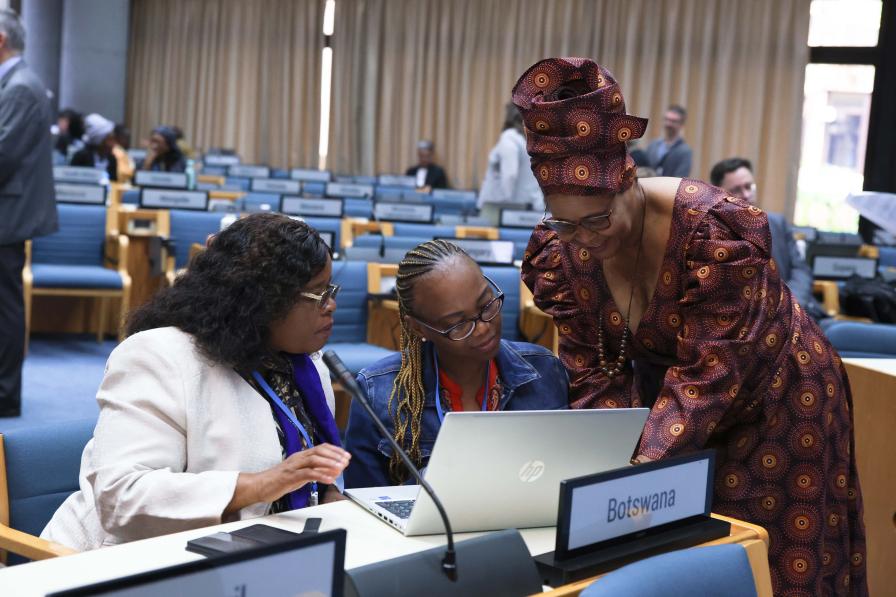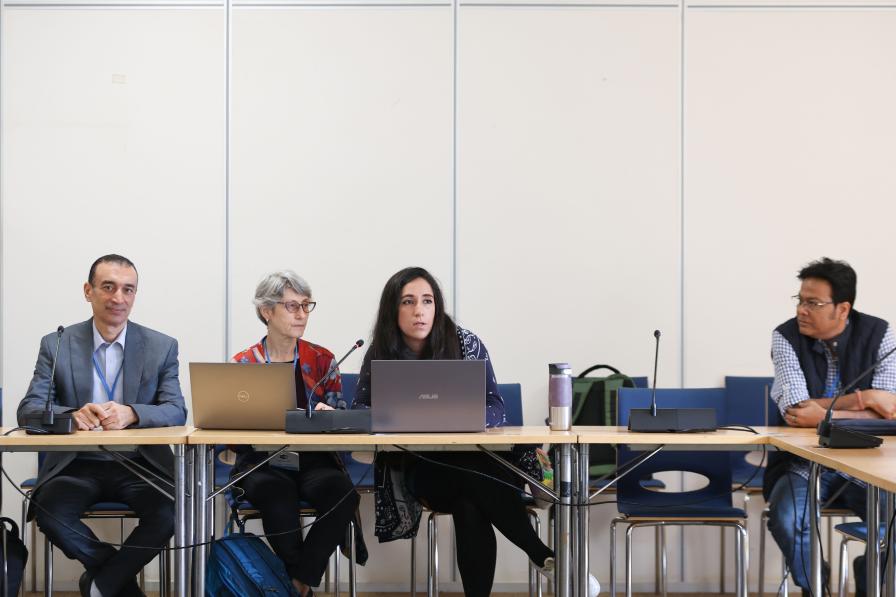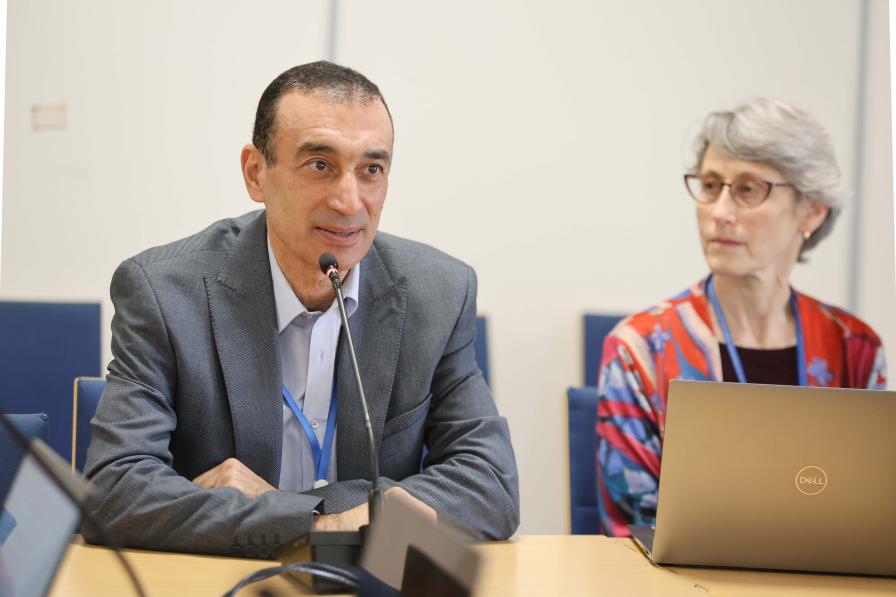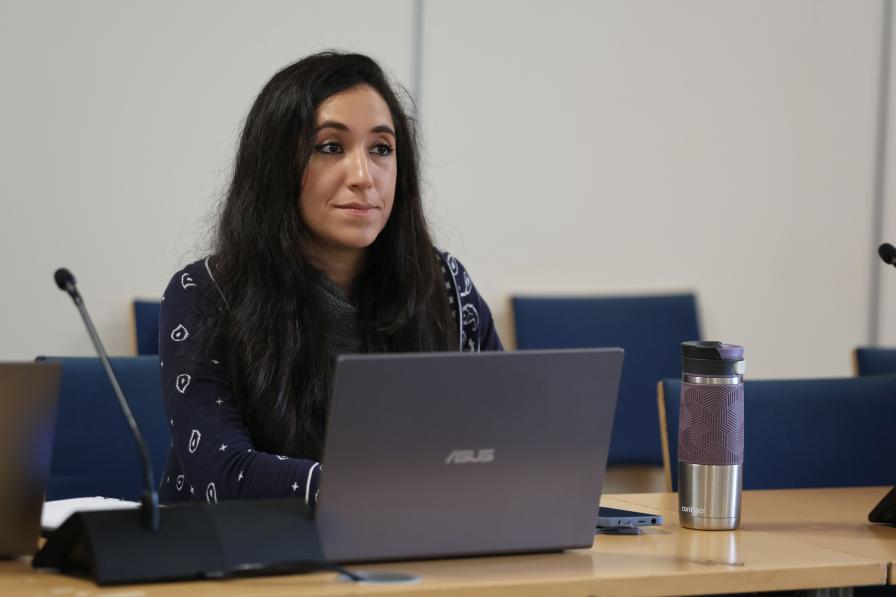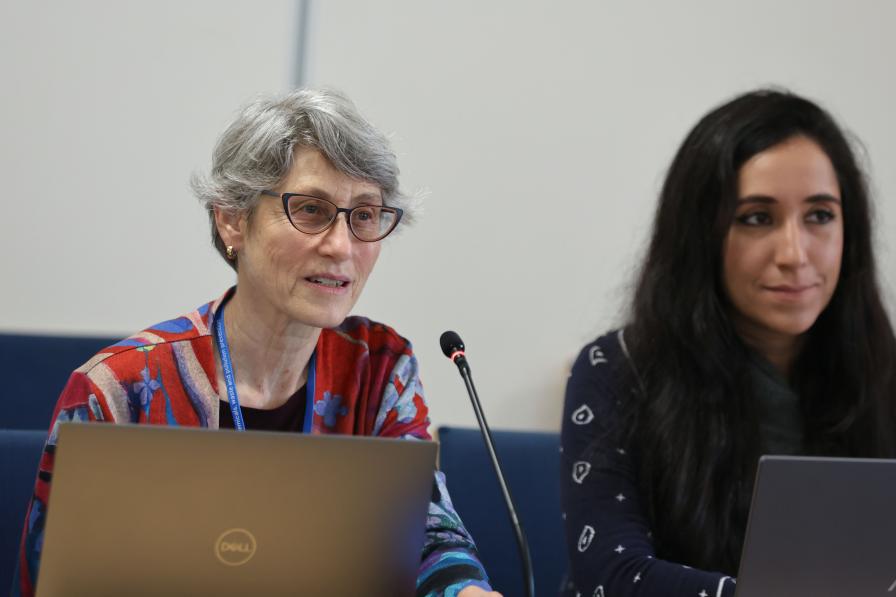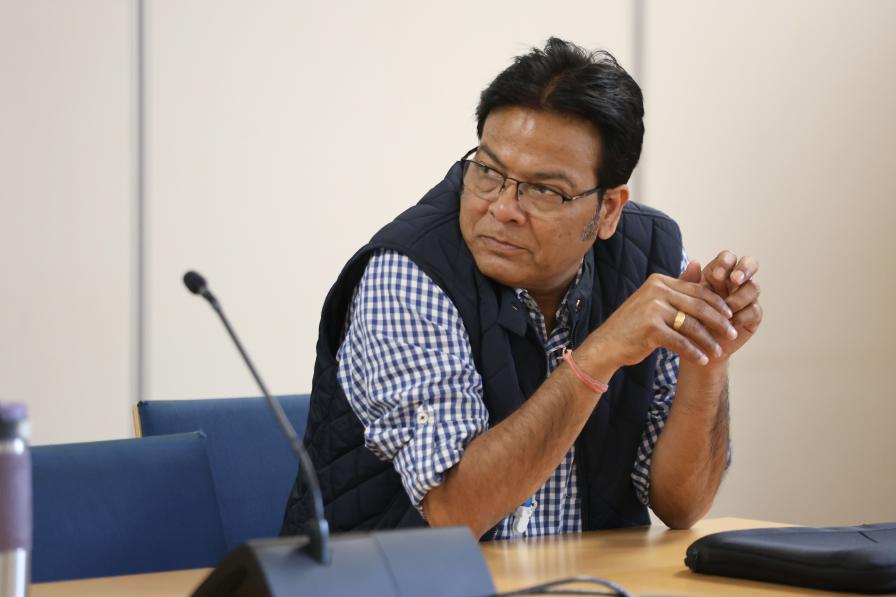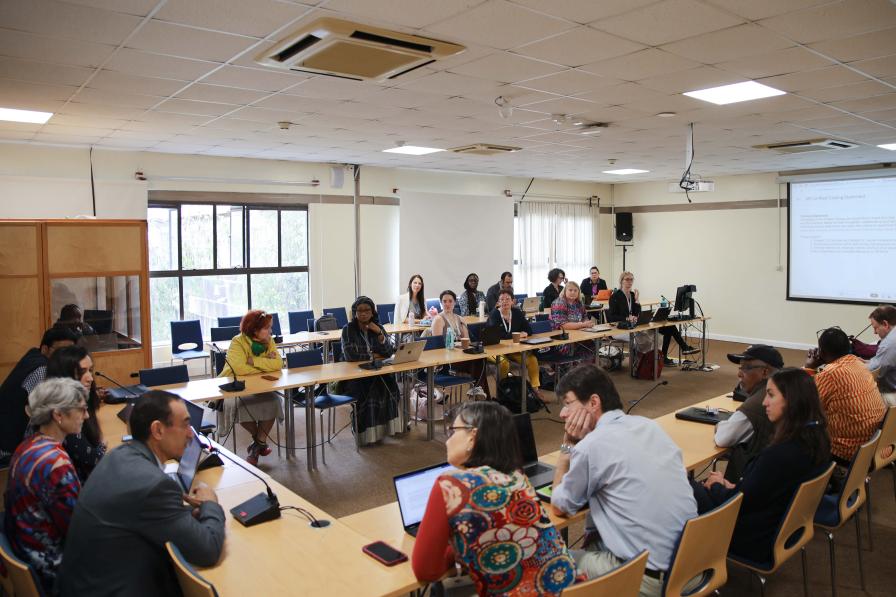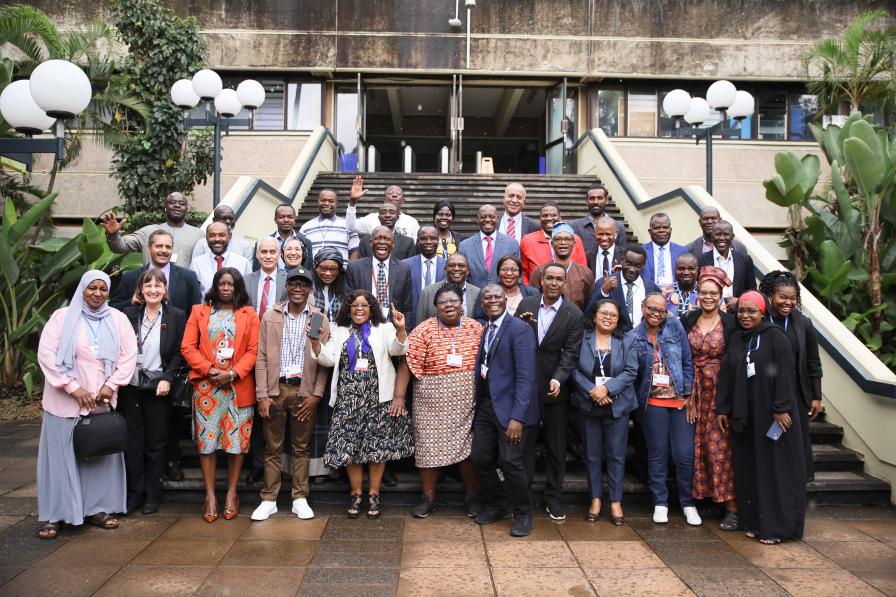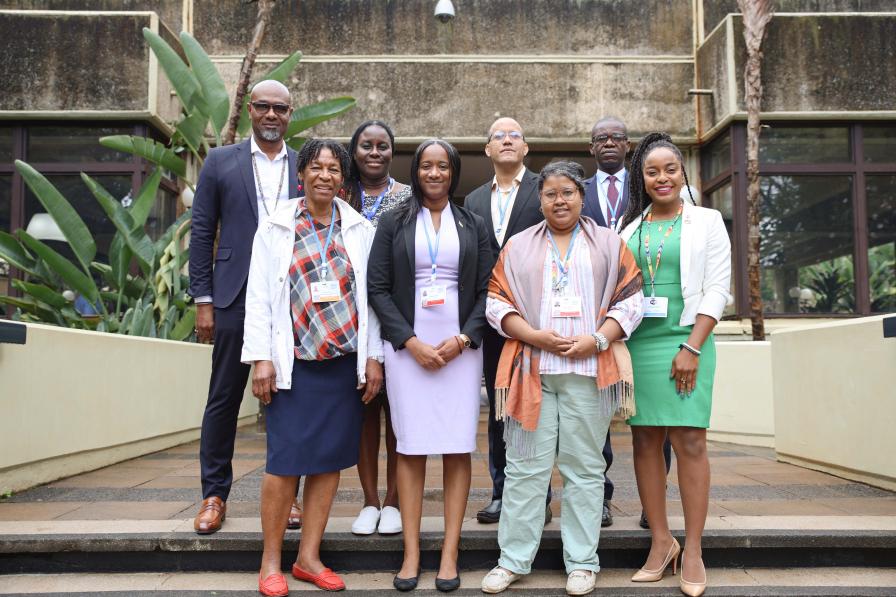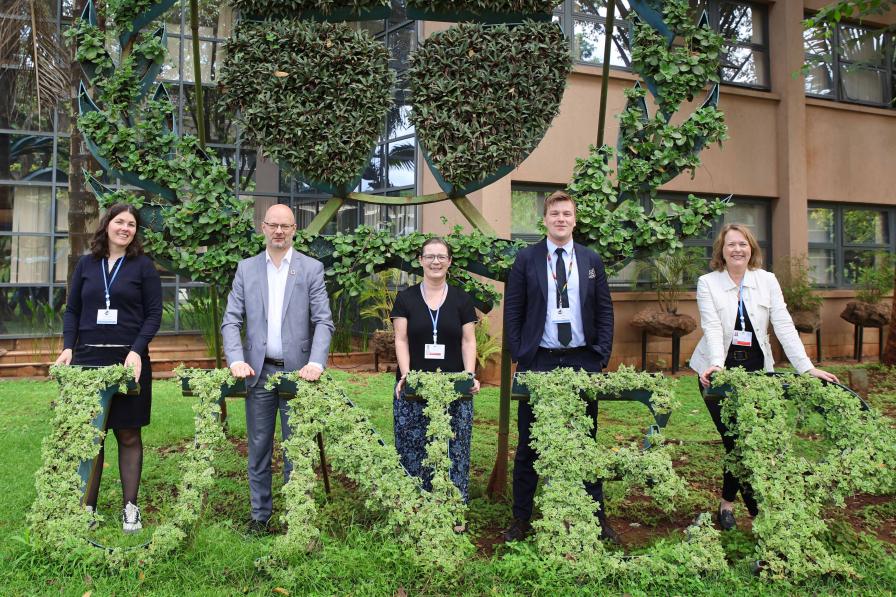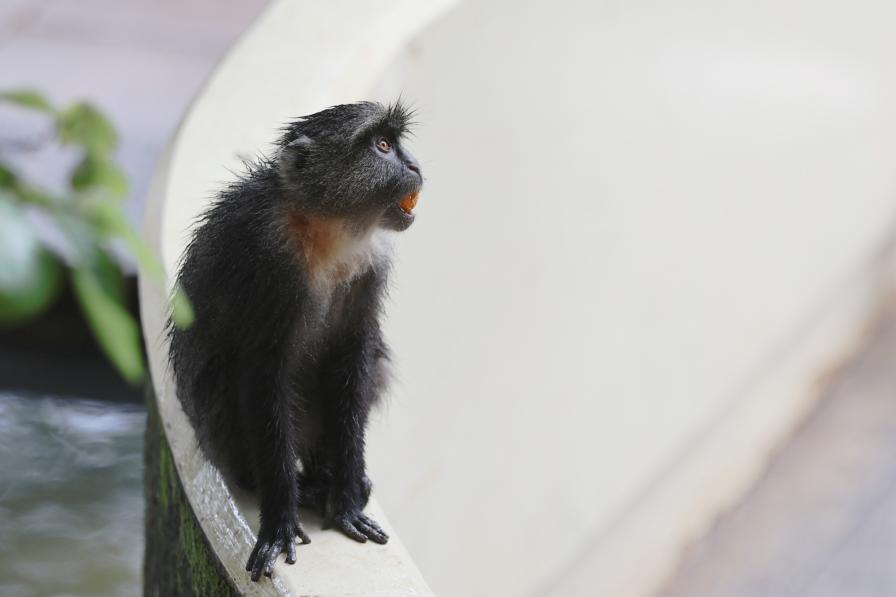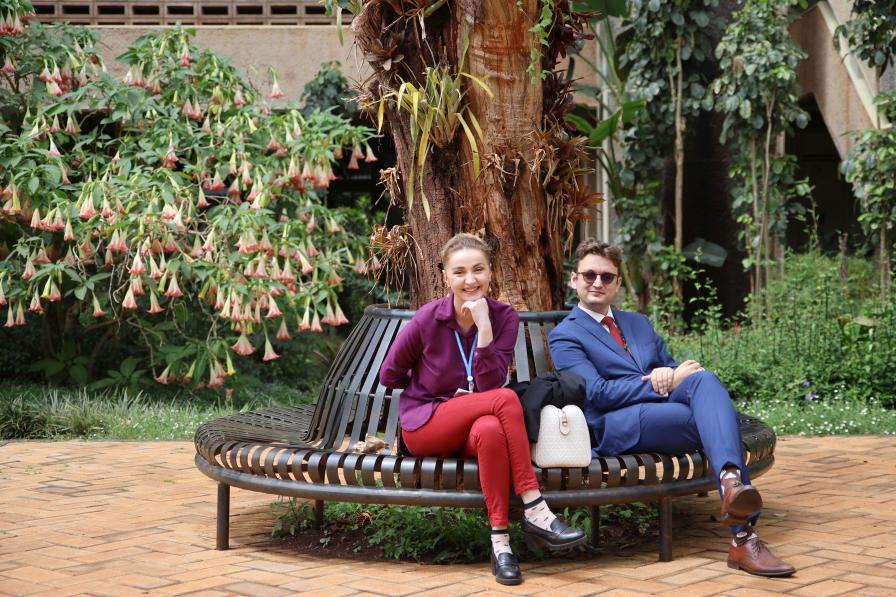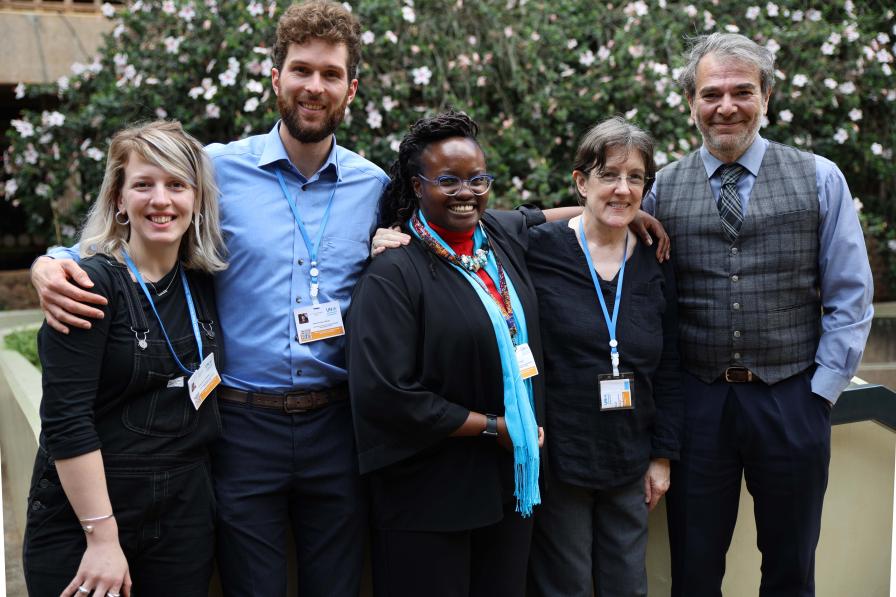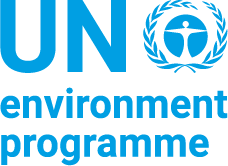Intersessional work took center stage on the last day of the second meeting of the Ad Hoc Open-ended Working Group on a science-policy panel (OEWG-2 SPP) to contribute further to the sound management of chemicals and waste and to prevent pollution. Many delegates highlighted the importance of working between sessions to bridge remaining divergent opinions for the timely establishment of the SPP. Deliberations were eventful, with disagreements in particular on a request for intersessional submissions with a view to developing a revised disclosure form related to conflict of interest (CoI).
In the morning, Co-Facilitators Sam Adu-Kumi (Ghana) and Sofia Tingstorp (Sweden) delivered progress reports on the work of their respective contact groups on Thursday and introduced four conference room papers (CRPs), containing main outcomes on:
- institutional arrangements (UNEP/SPP-CWP/OEWG.2/CRP.2);
- operating principles (UNEP/SPP-CWP/OEWG.2/CRP.3);
- CoI (UNEP/SPP-CWP/OEWG.2/CRP.4); and
- scope, objectives, and functions (UNEP/SPP-CWP/OEWG.2/CRP.5).
Delegates approved the CRPs, with Chair Alkemade saying they will populate the respective sections of the skeleton outline for the development of the SPP. Due to previous technical omissions, revised CRPs were developed for institutional arrangements, and scope, objectives, and functions.
Co-Facilitator Katerina Sebkovå (Czechia) made an oral presentation on Thursday’s discussions in Contact Group 3 on work-related processes and procedures. She noted that the Secretariat presented a draft workflow chart on the steps and processes for larger assessments and delegates exchanged initial views. She reported on discussions regarding timelines for the preparation of deliverables and the review process for adoption of deliverables, including the role of the expert committee.
She highlighted the group’s preference for a transparent, rigorous, but simple procedure for review and adoption, aligned with practices under the Intergovernmental Panel on Climate Change (IPCC) and the Intergovernmental Science-Policy Platform for Biodiversity and Ecosystem Services (IPBES) allowing for joint initiatives.
Co-Facilitator Sebkovå noted that the group had agreed on the usefulness of the workflow chart but felt it less applicable to functions such as capacity building. She underscored a request for additional charts on other deliverables, to reflect institutional arrangements and cover timelines for consideration and adoption. She further stressed the need for a rolling programme of work to ensure flexibility.
On identification of experts, she noted delegates’ consensus that the required expertise will depend on the deliverables but also their divergent opinions on whether experts should be nominated by states or also by observer organizations. She emphasized the need for an interdisciplinary approach including environmental, health, and social sciences, and contributions from academia, policy, and industry with robust and transparent CoI provisions. She underscored that the workflow chart and Annex 4 of UNEP/SPP-CWP/OEWG.2/INF/10/Rev.1, containing procedures for the preparation and clearance of panel deliverables, will form the basis of discussions for OEWG-3.
Chair Alkemade suggested, and delegates agreed to, annexing the Co-Facilitators’ report to the meeting’s report and closed the agenda item on the preparation of proposals for the establishment of the SPP.
On options for the timetable and organization of the future work of the OEWG, Co-Facilitator Přemysl Štěpánek, Czechia, reported on the work of Contact Group 4 on Thursday night. He said the group discussed intersessional arrangements based on input from the other contact groups and requested additional time to finalize deliberations, in particular on intersessional work on CoI.
Following another session of the Contact Group, plenary reconvened to finalize considerations on intersessional work, contained in UNEP/SPP-CWP/OEWG.2/CRP.6.
Co-Facilitator Štěpánek presented intersessional work, requesting the Secretariat to:
- develop draft texts for consideration at OEWG-3 on the annexes on rules of procedure, financial rules and procedures, the process for determining the work programme, and procedures for the preparation and clearance of panel deliverables;
- develop an information document on financial arrangements;
- prepare proposals for a revised CoI form based on the discussions at OEWG-2;
- prepare timely webinars on the capacity-building function and the documentation for OEWG-3; and
- facilitate regional consultations.
Delegates approved UNEP/SPP-CWP/OEWG.2/CRP.6 with no further comments. Chair Alkemade suggested, and delegates agreed to, annexing the CRP to the meeting’s report.
Rapporteur Cyrus Mageria (Kenya) introduced the meeting report (UNEP/SPP-CWP/OEWG.2/L.1), which delegates adopted with minor comments.
In closing remarks, representatives of regional and stakeholder groups highlighted progress achieved during the meeting and noted that important work remains, welcoming the activities slated for the intersessional period leading to OEWG-3, scheduled for June 2024.
Chair Alkemade thanked all those who contributed to a successful meeting and delegates for their constructive engagement and spirit of cooperation. She stressed that the meeting laid the foundations to fulfil the promise made at the UN Environment Assembly (UNEA) to make proposals to establish an SPP for the sound management of chemicals and waste, and to prevent pollution for the protection of human health and the environment. She emphasized that the task is to elevate science in decision-making processes in order to impact actions on the ground. She underscored that a lot of work lies ahead before OEWG-3, but “with mutual respect, building upon agreements, taking into account others’ concerns, and staying true to UNEA Resolution 5/8, we can find the necessary compromises for the panel’s establishment.” She gaveled the meeting to a close at 5:28 pm.
To receive free coverage of global environmental events delivered to your inbox, subscribe to the ENB Update newsletter.
All ENB photos are free to use with attribution. For the OEWG SPP, please use: Photo by IISD/ENB | Anastasia Rodopoulou
